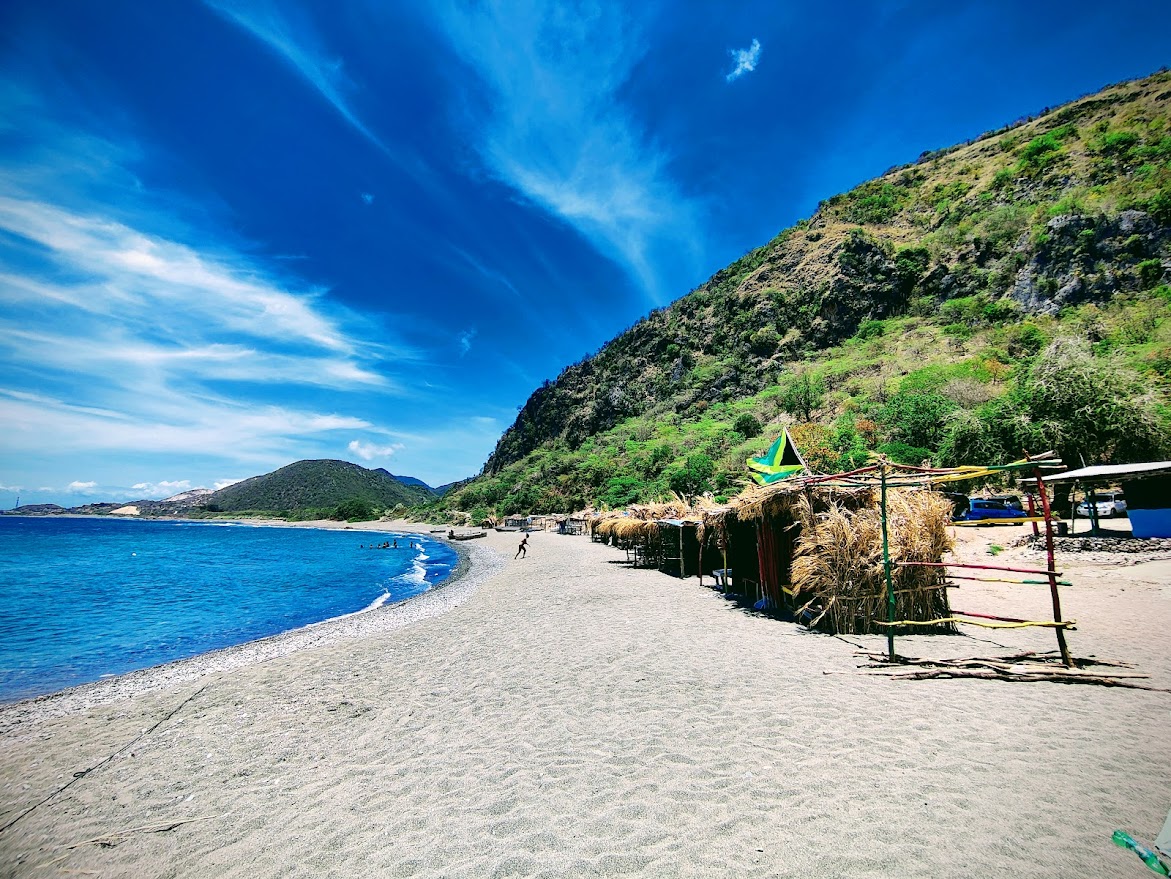Jamaica’s reputation as an island paradise is well-deserved, largely thanks to its stunning beaches, which are a cornerstone of your vacation experience. The island’s extensive coastline offers a diverse range of beach options, from serene, white-sand retreats to vibrant cultural hotspots, where the radiant spirit of Jamaica shines through. These beaches aren’t just for show; they play a pivotal role in the tourism industry, drawing travelers from around the world seeking sun, sand, and the warm Caribbean sea. In this blog, we’re going to completely cover Jamaica Beaches Public Access, and all the history and rules regarding the topic.
Understanding your rights to access these beaches is crucial as they are a public treasure, but you might not always know how to navigate these rights amidst private developments. Acknowledging the significance of these beaches, recent efforts have focused on enhancing public access while promoting sustainable tourism. Jamaica’s beaches symbolize a shared space where locals and visitors alike can revel in the natural beauty of the island and participate in recreational and cultural activities.
Your exploration of Jamaica’s beaches might uncover the differing levels of access across the island, with some being more readily available to the public than others. Initiatives and policies being discussed and implemented aim to ensure that you have equitable access to these coastal spaces while balancing environmental preservation with economic development. This balance is key to maintaining Jamaica’s allure as a top travel destination while safeguarding the interests of both the local community and the nation’s visitors.
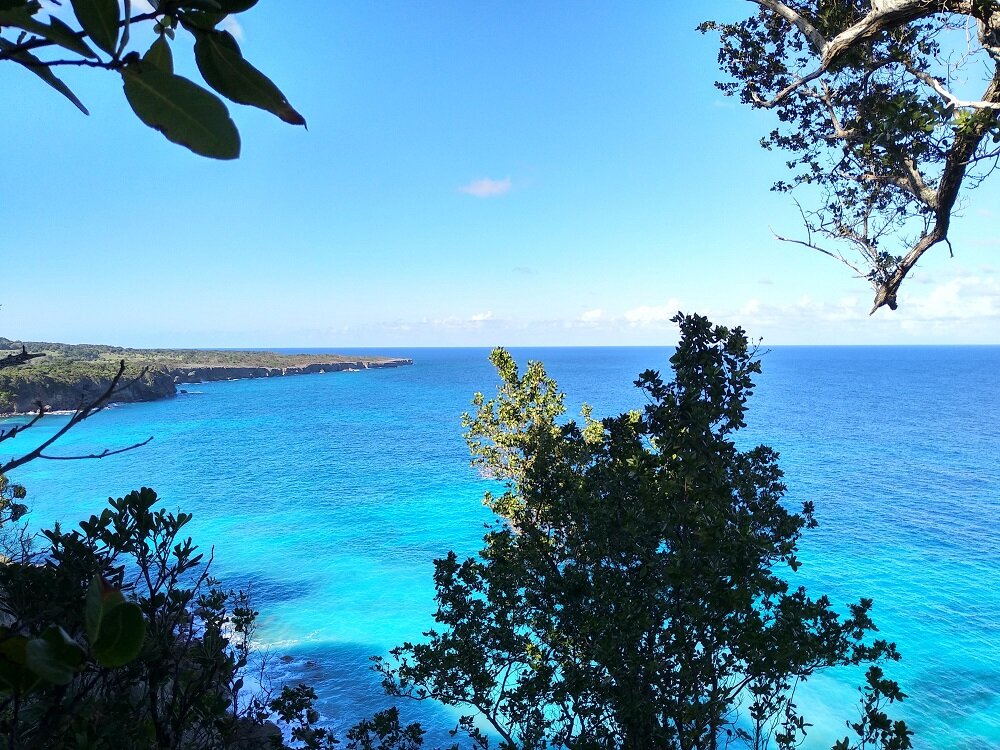
History and Legislation of Public Beach Access in Jamaica
In Jamaica, your rights to access beaches are chiefly governed by specific legislations that have been developed and amended over the years. Understanding these laws gives you clarity on your entitlements and the framework that shapes public beach access.
Beach Control Act of 1956
The Beach Control Act of 1956 is pivotal as it regulates the use and development of the foreshore and floor of the sea. Initially, it did not offer a general public right to access beaches. This legislation vests ownership of the foreshore in the Crown and allows for rights over the foreshore and the seabed only if they have been granted specifically under this act. The Beach Control Authority is the body responsible for overseeing the administration of these provisions.
Public Access and Management Policy
Your concerns regarding beach access have led to the development of the Beach Access and Management Policy. This policy addresses issues such as:
-
- The need for clearly defined access points for the public to reach beaches.
-
- The requirement for more public beaches that meet good standards for recreational activities.
This aims to improve both the physical entryways to beaches and the standard of these public spaces for your enjoyment.
National Legislation Influences
Additional legislations, including the Prescription Act, now play a role in influencing your access to beaches. While these laws might not directly reference beach access, they offer a framework contributing to how rights of access can be acquired over time. These legal instruments collectively form the current state of law governing public access to beaches in Jamaica, which the government has the capacity to amend or enforce to change how beach access is managed and maintained.
Public Beaches Accessibility: Can Jamaican Access their own Beaches?
Your understanding of public beaches accessibility in Jamaica is pivotal when planning your visit. Regulations and initiatives by various entities ensure that you have rights to access and can enjoy the beauty and recreational value of the beaches.
General Rights to Access
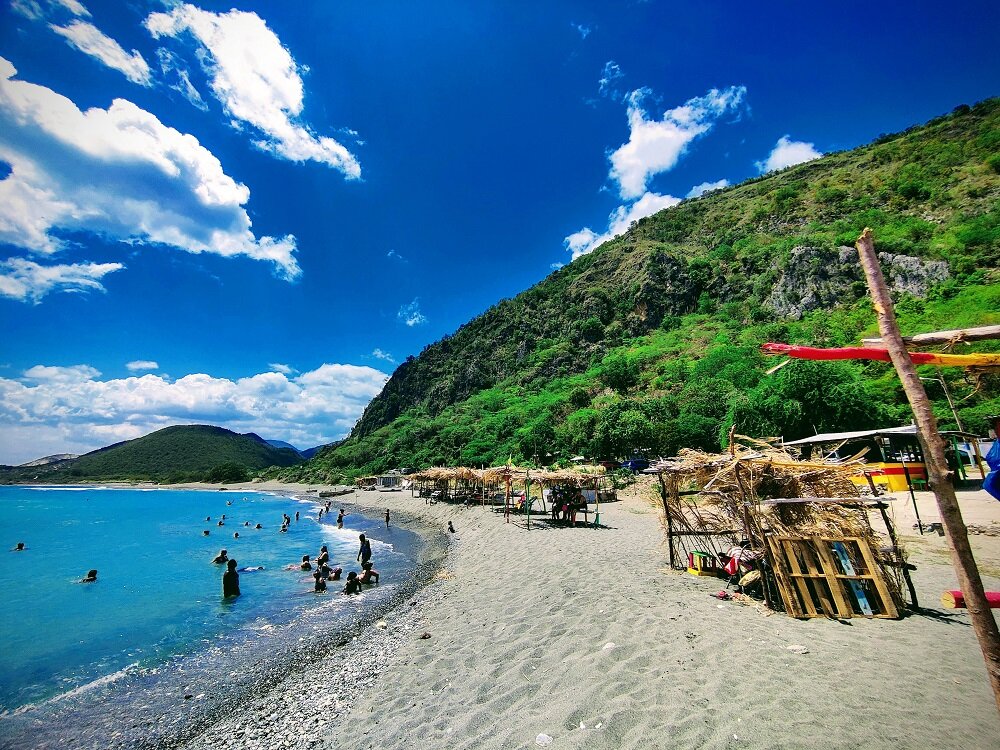
You have a legal right to access public beaches in Jamaica. These beaches are designated under law for your use and enjoyment, as mandated by the Beach Control Act of 1956. All rights to the foreshore (the area between high and low tide marks) are vested in the Crown, but for public beaches, you are guaranteed access without any obstruction.
The Role of Urban Development Corporation
The Urban Development Corporation (UDC) plays a critical role in managing and improving beach access for you. They oversee several public beaches and work on developing these areas, ensuring that you have the necessary amenities and infrastructures, such as parking and sanitary facilities, to enhance your beach experience.
National Environment and Planning Agency Initiatives
The National Environment and Planning Agency (NEPA), along with the Natural Resources Conservation Authority (NRCA), is proactive in safeguarding your beach access rights. NEPA aims to increase the number of officially designated public bathing beaches, which stood at 86 as reported in 2017. Their initiatives often include environmental management to preserve the beaches you love. They also regulate the licensing of these beaches to maintain their public status and accessibility.
Remember, your awareness of these rights and the roles that these entities play empowers you to fully enjoy Jamaica’s beautiful beaches and contributes to the sustainable management of these natural resources.
Economic Aspects and Development
Your understanding of Jamaica’s beaches goes beyond leisure; it encompasses significant economic dimensions and developmental impacts. This section elucidates how the Tourism Enhancement Fund, local livelihoods, and private sector collaboration contribute to the financial and structural progression of the public beachfronts.
Tourism Enhancement Fund
The Tourism Enhancement Fund (TEF) is a pivotal resource for maintaining and upgrading public beach facilities. Your contribution, made through a compulsory fee when entering Jamaica, directly finances these improvements. This fund ensures that beaches remain attractive to tourists while providing upgraded amenities that benefit all stakeholders, including you, the visitor.
Fishermen and Local Communities
Public beaches serve as key venues for the livelihood of local fishermen and other community members. Your interaction with these communities supports a circular economy, where local businesses thrive on the influx of visitors. The development of public beach areas respects and incorporates the needs of Jamaicans who depend on these spaces for their daily bread.
Private Sector Involvement
Private sector participation is encouraged to drive further development of beach areas, balancing commercial interests with your right to access. These investments have contributed to the exponential growth of tourism, benefiting the overall economy of Jamaica. These involvements are regulated to ensure that while private enterprises flourish, your access to the beaches is not compromised.
Beach Facilities and Management
As you explore Jamaica’s beaches, you’ll notice the emphasis on maintaining a balance between accessibility and sustainability. The management of these beaches takes into account both your safety and enjoyment.
Maintenance and Enhancement
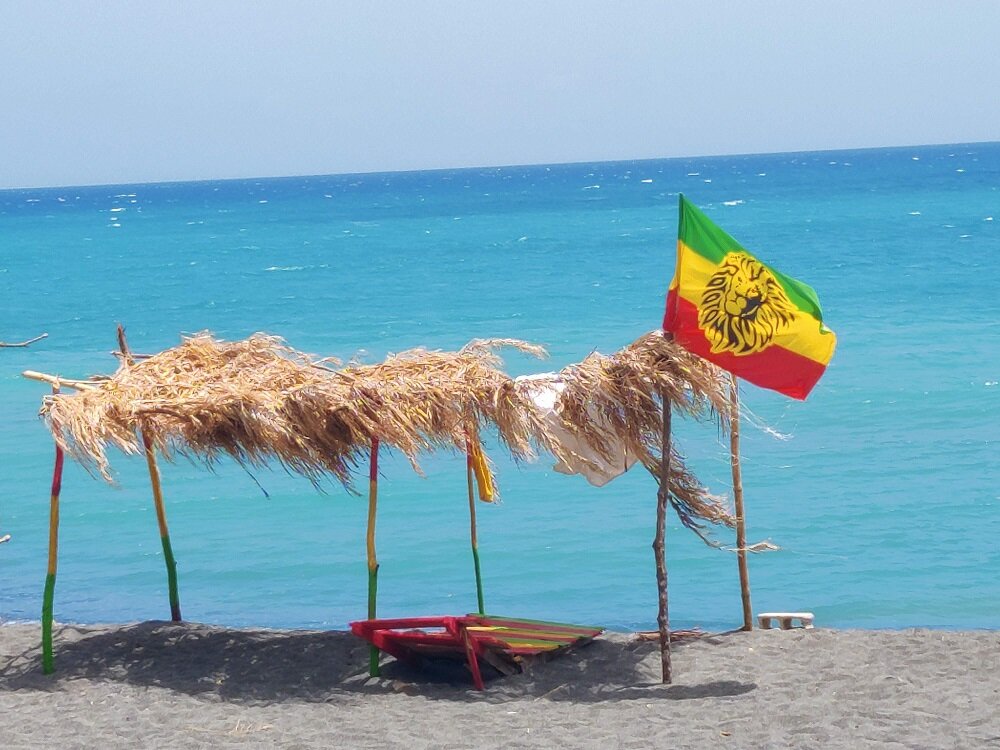
Your experience at Jamaica’s beaches is enhanced through regular maintenance, which ensures cleanliness and the preservation of the natural environment. Beach enhancement projects are often undertaken to improve both the aesthetic appeal and the utility of the beaches for your enjoyment. Maintenance includes the removal of litter and seaweed, as well as measures to prevent beach erosion.
Infrastructure and Amenities
To provide a comfortable and convenient visit, Jamaican beaches are equipped with various amenities. You will generally find:
-
- Adequate Parking: Designated parking areas to safely leave your vehicle.
-
- Bathrooms: Varying accessibility with some beaches offering free facilities, while others may charge a fee.
-
- Beach Facilities: Such as:
-
- Rental of beach chairs and umbrellas,
-
- Kiosks selling food and drinks,
-
- Showers for rinsing off seawater.
-
- Beach Facilities: Such as:
Beaches cater to your needs with basic to well-developed facilities, most allowing you to bring your own food, and many permitting cooking on the shore.
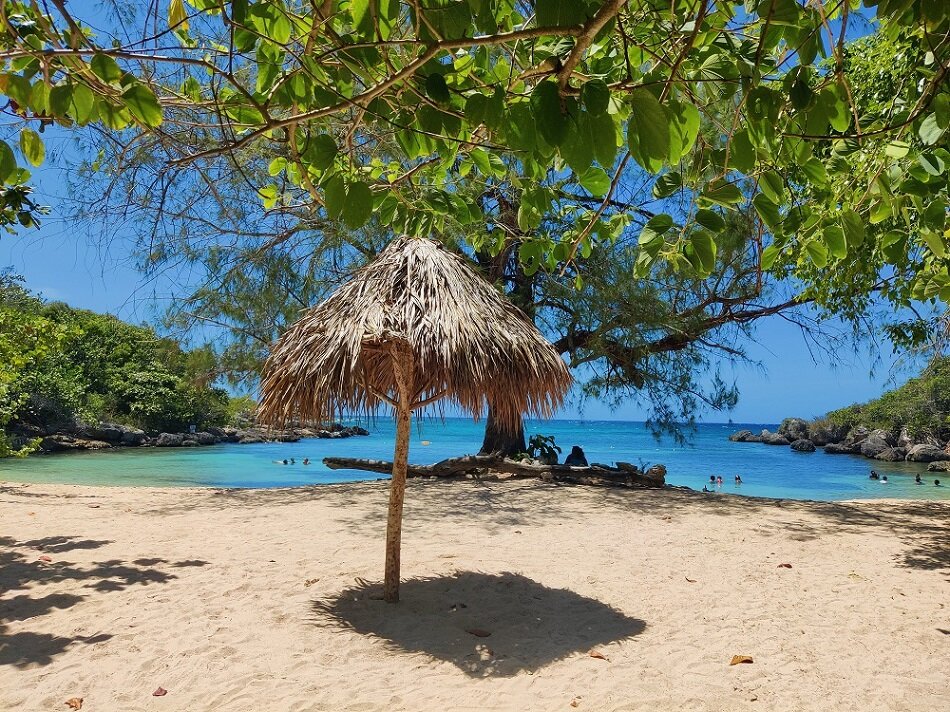
Safety and Regulations
Your safety is a priority with lifeguards present on many of the beaches. Regulations are in place to protect you and the beach environment, including rules about swimming zones and the use of watercraft. Compliance with these regulations ensures that the beaches remain safe and enjoyable spaces for everyone.
Challenges and Environmental Concerns: Is Jamaica Affected by Enviromental Changes?
Your understanding of Jamaica’s public beach access issues is incomplete without considering the tensions between public interest and private ownership, the imperative of conserving natural resources, and how public advocacy reflects societal concerns.
Public vs. Private Interests
You should be aware that the beaches of Jamaica are caught between the needs of local communities, including fishermen, and the development priorities of private entities. Private ownership of beachfronts often results in restricted access for you and fellow public beachgoers. For instance, hotels might claim the better-quality beaches—limiting available options for public use. This tension impacts not only beach access but also can influence housing and urban development patterns.
Natural Resource Conservation
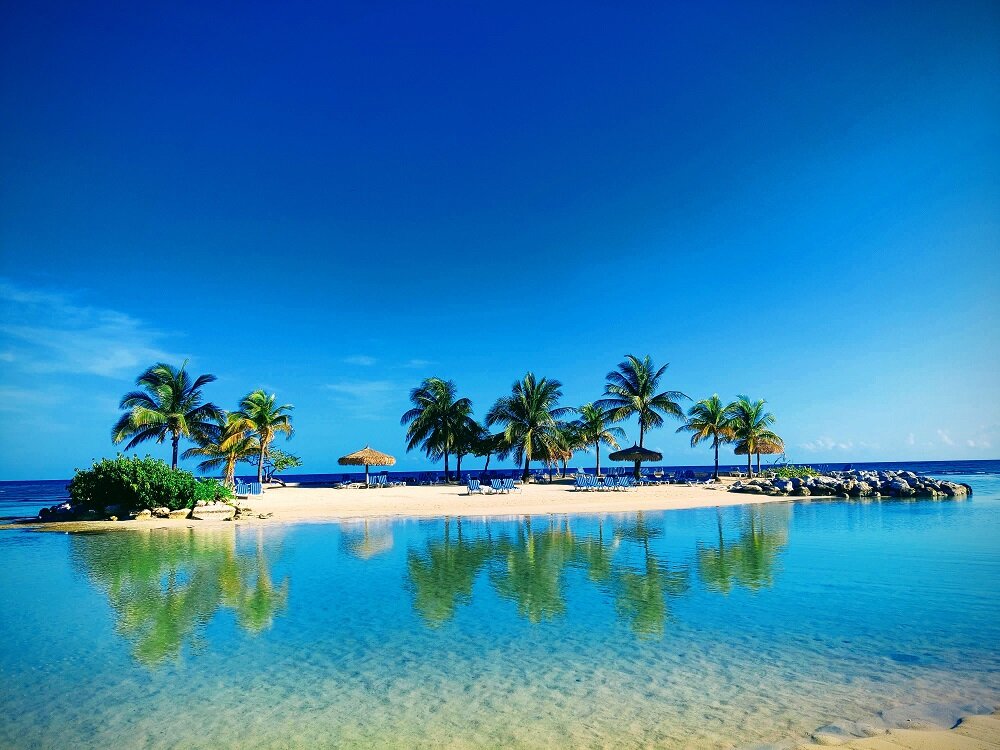
The natural beauty of Jamaica’s beaches is integral to the island’s appeal, but you must note the environmental pressures they face. Overuse and exploitation by the tourism industry can lead to habitat destruction, which in turn affects fisheries – a vital resource for local communities. Conservation efforts are crucial to ensure the sustainability of these natural resources and to protect your future access and enjoyment of the beaches.
Public Advocacy and Protests
Communities in Jamaica have not been silent on these matters. You might find instances of protests where groups stand against what they view as beach access apartheid, fighting for their rights to enjoy their natural heritage. These actions typically call for greater inclusivity and transparency in beach management policies, reflecting the citizens’ desire to protect their access rights against commercial encroachment.
By understanding these challenges and the environmental concerns they pose, you become better equipped to appreciate the underlying dynamics of Jamaica’s coastal accessibility issues.
Jamaica Hotel Beach Access Policy: What You Need to Know
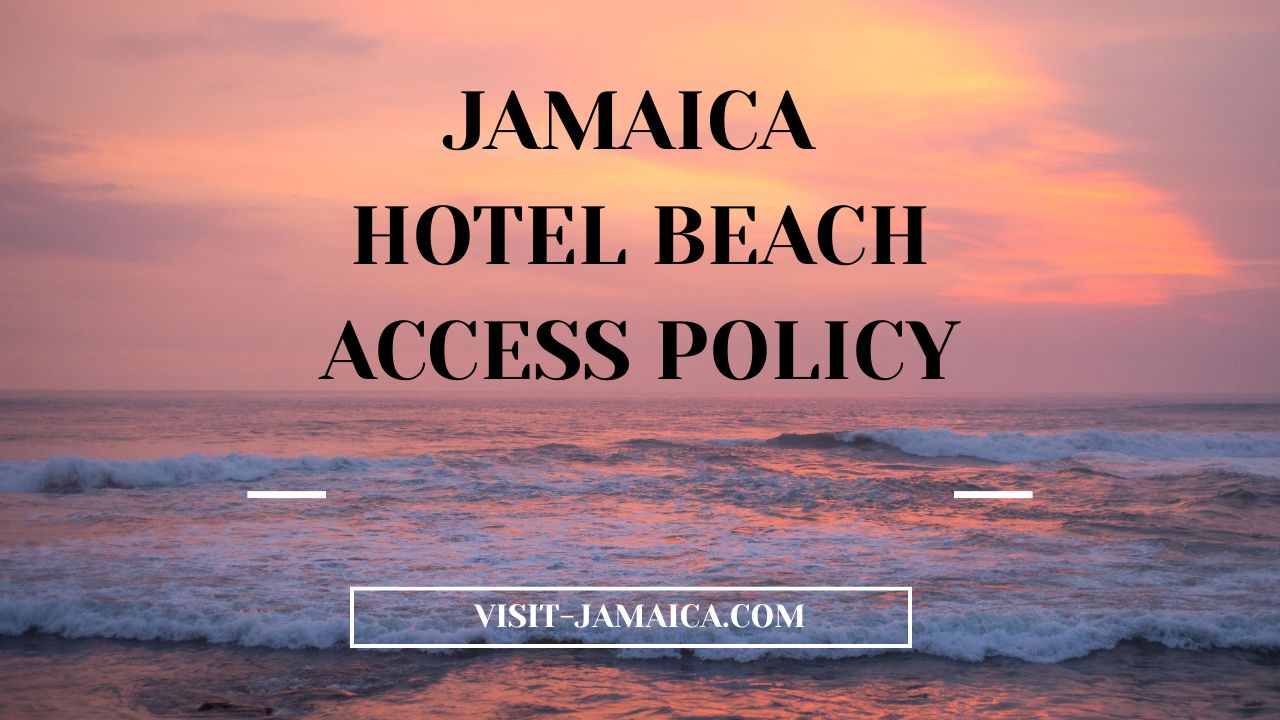
One of the most pressing issues when discussing beach access in Jamaica is understanding how private ownership intersects with public rights — especially when it comes to resort zones. As a visitor or a Jamaican resident, you may often wonder: Are hotel beaches really off-limits? Do I have a right to use them? This is where the Jamaica hotel beach access policy comes into play.
Jamaica Beach Access Laws
To comprehend how hotel access works, you first need to understand the legal foundation behind Jamaica beach access. The Beach Control Act of 1956 declares that the foreshore and seabed — essentially the area from the high-tide mark to the sea — are owned by the Crown. This technically makes all beaches in Jamaica public, but access to these areas can be restricted based on who controls the surrounding land.
Many beachfront properties, including hotels and all-inclusive resorts, lease the foreshore from the government. While they cannot claim ownership of the beach itself, they can control access through their land, which is often private. This setup leads to what many describe as a “controlled access” model — not outright denial of access, but the creation of barriers that limit it in practice.
Controlled Access vs. Public Rights
The term “Jamaica beach access control” is especially relevant when dealing with hotels and resorts. These properties often employ controlled access points — such as gates, wristbands, security checkpoints, or exclusive walkways — to ensure that only guests or paying day-pass holders can reach the beach from their premises.
In theory, Jamaica beach public access still exists at these locations. However, without nearby public right-of-way paths or easements, reaching these beaches can become practically impossible unless you’re staying at the hotel. This situation has prompted public debates and even protests in Jamaica, as citizens and advocacy groups push back against what they see as exclusionary practices.
Hotel Policies and Visitor Options
So what does this mean for you as a traveler or a local beachgoer? Here’s a breakdown of typical Jamaica hotel beach access policies and how you can navigate them:
-
Hotel Guest Access: If you’re staying at the resort, you’ll have unrestricted access to the beach area within the property’s boundaries, including lounge chairs, food and beverage services, and security-monitored zones.
-
Day Passes: Many hotels offer day passes for non-guests. These usually range in price and include access to the beach, pools, bars, and sometimes meals.
-
Public Access Routes: Some beaches near hotels still have designated public access paths, though they may be harder to locate or poorly maintained. Examples include areas of Seven Mile Beach in Negril, where certain sections remain open to the public despite bordering resorts.
-
Security Protocols: Hotels often employ private security to enforce guest-only access on their immediate property. However, they are not legally allowed to restrict public use of the actual foreshore area, unless you’re trespassing through private land to reach it.
Government Policy on Hotel Beach Access
The Jamaican government has acknowledged the growing concern over public access being obstructed by private developments. Through the Beach Access and Management Policy, officials aim to ensure that hotel development does not override public rights. The policy includes:
-
Mandatory Public Access Points: New hotel projects may be required to include public easements or walkways.
-
Environmental and Community Impact Assessments: Before construction, hotels must assess how their footprint affects community access and ecological sustainability.
-
Regulatory Oversight: Agencies like the Urban Development Corporation (UDC) and National Environment and Planning Agency (NEPA) monitor hotel developments to ensure they comply with national access policies.
Local and Tourist Awareness is Key
Whether you are a local resident trying to enjoy your national coastline or a visitor looking for a genuine beach experience, being informed about Jamaica beach rules and hotel access policies helps you make better decisions.
Some tips to maximize your access:
-
Research before your trip: Look up beach maps or use resources like NEPA’s public beach database.
-
Ask locals: Taxi drivers, vendors, and fishermen often know where access points exist — especially in tourist-heavy areas.
-
Respect property boundaries: Even if you believe you have a right to access the beach, do not trespass through hotel grounds unless clearly marked as public access.
Balancing Tourism and Equity
Jamaica’s economy relies heavily on tourism, and hotels are a key part of that industry. However, ensuring that the public — especially local Jamaicans — continue to enjoy the beaches is critical for social and cultural harmony.
The Jamaica hotel beach access policy is at the heart of this balancing act. As policies evolve, the goal is to create a framework where beach access in Jamaica is equitable, environmentally sustainable, and economically beneficial for all parties — not just the tourism sector.
Regional Focus on Beach Access
In Jamaica, beach access varies by region, and as you explore from the west to the east, the integral facets of public access present a diverse landscape of choices and challenges faced by these beach-bound parishes.
Negril and Westmoreland
Negril, located in the parish of Westmoreland, boasts a reputation for its expansive Seven Mile Beach, with its shores being a powerful draw for visitors and locals alike. Your experience here is influenced by efforts to maintain public access to the foreshore, ensuring that the beaches remain reachable for everyone without compromising the natural beauty for which Negril is renowned.
Trelawny and Its Beaches
Moving towards Trelawny, the region has less commercialized beaches compared to its neighbors, which can be both a charm and a conundrum. You can expect a more serene environment, with beaches like Burwood Beach becoming more welcoming as part of the government’s public-access initiatives. Accessibility enhancements here favor not just visitors but also cater to the local communities that frequent these waters for leisure and livelihood.
Eastern Parishes: Portland and St. Ann
In the eastern parishes, including Portland and St. Ann, you encounter a range of public beaches characterized by natural allure and historical significance. As they navigate concerns related to beach development, these parishes strive to strike a balance between inviting tourism and preserving public access. St. Ann particularly has seen government-led efforts to upgrade facilities like Fantasy Beach Park, thus elevating the beach experience while keeping it open for all to enjoy.
Access to Beaches for Recreation and Enjoyment
When you visit Jamaica, you have the opportunity to enjoy and utilize the beaches for recreation, which is vital for public health, inclusive access, and cultural experiences.
Recreation and Public Health
Your recreation activities at the beach are not just for pleasure; they also contribute significantly to your physical and mental health. Jamaicans and visitors alike are drawn to the approximate 238.5 km of public coastline for various activities such as swimming, jogging, and beach sports. This engagement in outdoor activities is essential for maintaining a healthy lifestyle.
Inclusive Access for All

In Jamaica, beaches should be accessible to all, without discrimination. Ensuring inclusive access is about more than legality; it’s about fostering a society where everyone, regardless of background, can enjoy the beaches. Initiatives to improve public access strive to balance private development with the rights of local Jamaicans and visitors to experience the beach for recreation and enjoyment.
-
- Accessibility factors:
-
- Physical access paths
-
- Affordable entry cost, if any
-
- Facilities suitable for all ages and abilities
-
- Accessibility factors:
Cultural Importance of Beaches
The beaches of Jamaica hold immense cultural significance for the island’s residents. They serve as venues for social interactions, traditional fishing practices, and community gatherings. Your experience at the beaches of Jamaica allows you to witness and partake in the vibrant local culture, rich in history and shared joy.
Beach Access Policy and Future Directions
In shaping the future of Jamaica’s beaches, you need to consider ongoing policy revisions, leadership guidance, and strategic planning. These components are essential in ensuring beach access for both locals and visitors.
Policy Consultations and Revisions
Consultations: A cornerstone of the Beach Access and Management Policy involves comprehensive stakeholder consultations. This stage is crucial as it taps into public sentiment and expert insights to revise and tailor policy details to the country’s needs. Key Entities Involved: The National Environment and Planning Agency and the Ministry of Tourism play vital roles, alongside the interests of the Crown, to ensure public recreational beaches remain accessible.
-
- Revision Goals:
-
- Ensure equitable beach access across Jamaica.
-
- Balance economic development with environmental sustainability.
-
- Revision Goals:
Statements by Prime Minister Andrew Holness
Prime Minister Andrew Holness has affirmed the government’s commitment to drafting legislation that emphasizes the importance of beach access for all citizens. According to his statements, the government is poised to table the Beach Access and Management Policy in Parliament, highlighting a proactive approach to coastal zone development and public utilization.
-
- Public access remains a top priority for the government.
-
- Future development projects will be monitored for conformity with beach access provisions.
Long-term Strategic Framework
Developing a Long-term Strategic Framework for the Beach Access and Management Policy involves laying out a roadmap for implementation and oversight. The framework is designed to ensure the policy’s objectives are sustainably maintained, with an emphasis on:
-
- Land Acquisition for the creation of new access points.
-
- Maintenance and improvement of the standards of public beaches.
-
- Legislation that will safeguard these policies for future generations.
Jamaica’s Reputed Beach Destinations
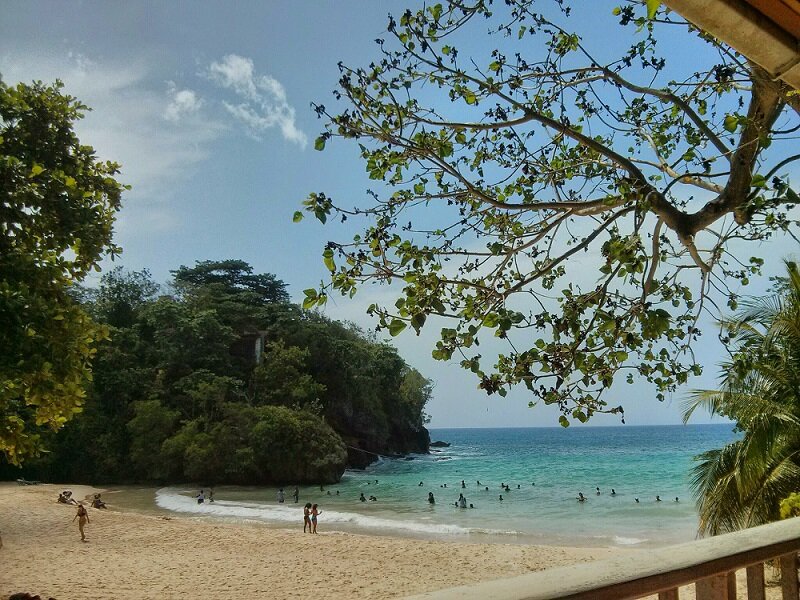
Jamaica offers an array of renowned beaches that cater to your desire for relaxation, adventure, and cultural immersion. Below, you’ll explore prime coastal regions, their accessible public beaches, and the unique elements that make them a national treasure.
Montego Bay and Tourist Appeal
Montego Bay, commonly referred to as “MoBay,” is a perennial favorite among visitors. It’s not just the beauty of the azures that captivates, but the seamless blend of luxury resorts and vibrant public beaches. Doctor’s Cave Beach, with its clear turquoise waters, is easily accessible and offers an array of aquatic activities. It’s a display of Jamaica’s rich tourism combined with public access, and it underscores the philosophy that Jamaica’s natural beauty is a birthright available to all.
Ocho Rios: A Blend of Nature and Leisure
Ocho Rios tantalizes you with its scenic blend of thick foliage juxtaposed with stunning shores. Here you can witness the symbiosis of man-made leisure and untouched nature. Wander the Ocho Rios Bay Beach, also known as Turtle Beach, which is fringed by lush greenery—an idyllic public spot for locals and tourists alike. You’ll find this area a harmonious merge of resort-style amenities and the primal allure of Jamaica’s landscapes.
Public Beaches as National Birthright
Jamaica’s coastline is punctuated with beautiful beaches that are not only tourist hotspots but also revered by locals as a birthright. Public beaches like the iconic Seven Mile Beach in Negril offer open access to immaculate sands and clear waters, fostering a sense of community and shared heritage. In embracing these public spaces, you engage with the heart of Jamaica’s spirit, celebrating an inclusivity that allows everyone, regardless of background, to partake in the island’s coastal wonders.
Practical Information for Beachgoers: What Should I Know Before Visting Jamaica Beaches?
When planning your beach day in Jamaica, consider the entrance fees, access points, and safety guidelines to ensure a stress-free experience at the island’s many beautiful beaches.
Understanding Entrance Fees
In Jamaica, public beaches are accessible to everyone and some may charge an entrance fee. This fee is used for maintenance and facility services. The Beach Control Act regulates these fees to be reasonable, ensuring public enjoyment is not hindered by cost.
-
- Public Beaches: Often free or have a minimal charge
-
- Private Beaches/Resorts: May have higher fees for premium experiences
Finding Beaches with Public Access
Your access to beaches in Jamaica is protected by law, but some areas may be privately owned. Use these resources to locate publicly accessible beaches:
-
- Jamaica Beach Guide by NEPA: Provides a searchable list of public beaches.
-
- Local signage: Often indicates public access points.
To avoid trespassing on private property, look for marked public access pathways or consult local guides.
Tips for Relaxation and Safety
Your relaxation and safety are paramount. Here are key tips to remember:
-
- Check the local regulations: Follow beach rules to respect the environment and community.
-
- Sun Protection: Use sunscreen and stay hydrated to avoid heat-related illnesses.
-
- Swimming Safety: Be aware of any posted warning signs and lifeguard presence.
Note: It’s important to stay within designated swimming areas, especially in unfamiliar locales.
Beach Access and Community Impact
Public beaches play a vital role in your community by offering recreational space, supporting local economies, and serving as a focal point for community-led initiatives and public engagement in access rights.
Local Economies and Beach Access
Your proximity to accessible beaches directly influences your community’s economic vigor, especially if you rely on tourism. Fishermen and local vendors depend on free or affordable beach access to sustain their livelihoods. You may notice that businesses spring up in areas where access to public beaches is unrestricted, harnessing the flow of both locals and tourists.
Community Initiatives for Beach Management
As a community, you can engage in initiatives to ensure public beaches benefit everyone. Collaborative management efforts often lead to cleaner, better-maintained beaches, boosting community morale and the environment. If you participate in community-led beach management, you’re likely to witness tangible improvements in the amenities and infrastructure at your local beaches.
Public Engagement in Beach Access Rights
Understanding and asserting your general rights to beach access is crucial. You have a role in public debates and decision-making around coastal development projects that could impact your access. By staying informed and engaged, you can help shape policies to enhance public beach access, ensuring these spaces remain open and beneficial for all Jamaicans.
Frequently Asked Questions
Here, you’ll find answers to common questions about beach access in Jamaica, ensuring you have the accurate information needed for your next visit.
What are the best public beaches in Jamaica?
Some of the most acclaimed public beaches in Jamaica include Seven Mile Beach in Negril, Doctor’s Cave Beach in Montego Bay, and Treasure Beach in St. Elizabeth. Each offers unique charms and beautiful natural settings.
How can I find publicly accessible beaches in Montego Bay?
Public beaches in Montego Bay include Doctor’s Cave Beach and Walter Fletcher Beach. These beaches are known for their clear waters and amenities. You can search online or ask locals for directions to public beaches in the area.
Is there a fee to access beaches in Jamaica?
Many public beaches in Jamaica are free to access, while some may charge a small fee for maintenance and use of facilities.
What are the legal rights to beach access for visitors in Jamaica?
In Jamaica, there is a national policy aimed at ensuring public access to beaches. Although specifics can vary, the general principle is that there should be reasonable access to the beach for the public.
Can public access to Jamaica’s beaches be restricted by resorts?
Resorts and private property owners are subject to national policies that maintain public beach access. However, certain areas may have controlled access points due to private ownership extending to the high-water mark.
What measures are in place to ensure public beach access is maintained in Jamaica?
The Jamaican government is working to enhance public beach access through policies like the Beach Access and Management Policy. Efforts are made to manage and improve the standard of beaches, maintain public amenities, and ensure that access points remain open to the public.
